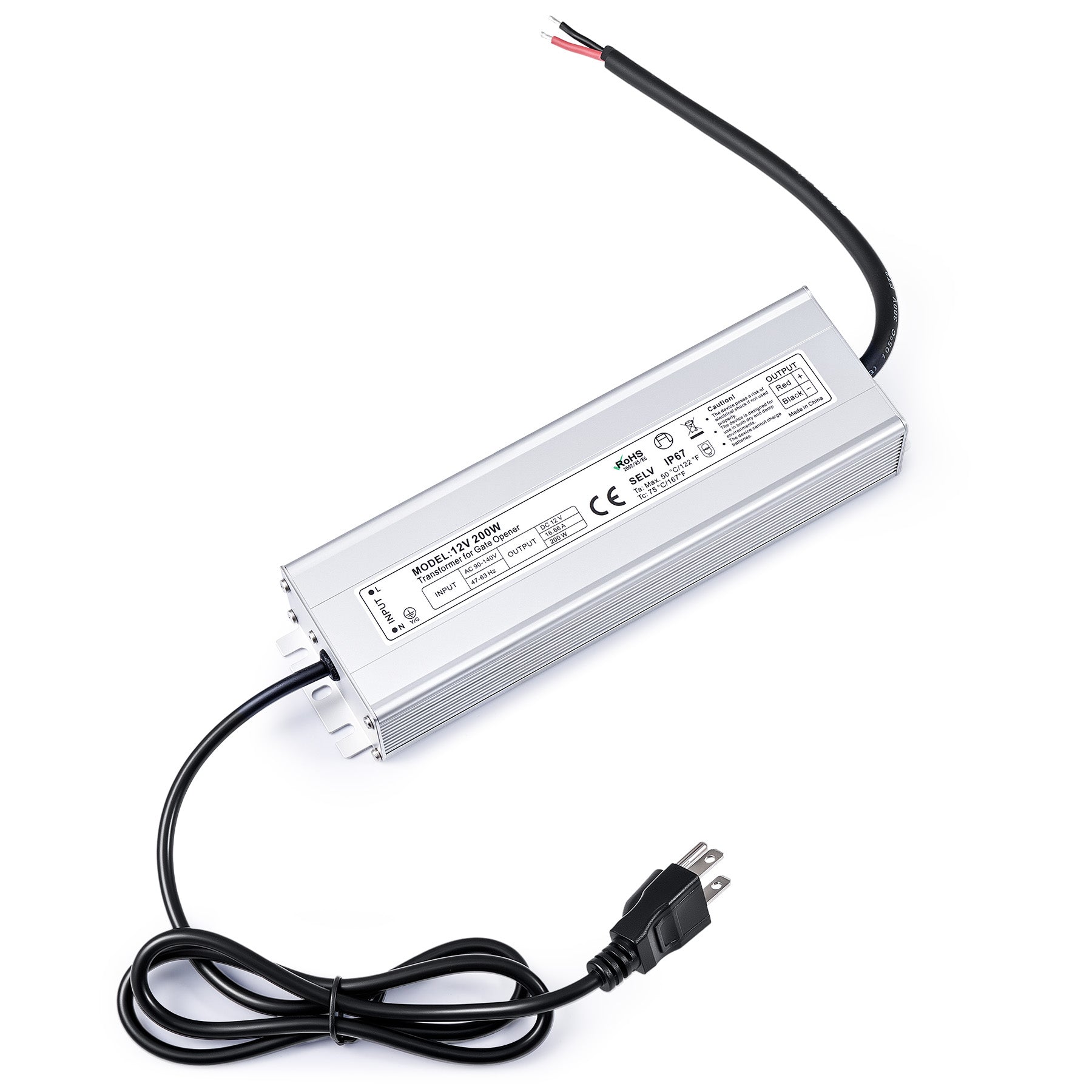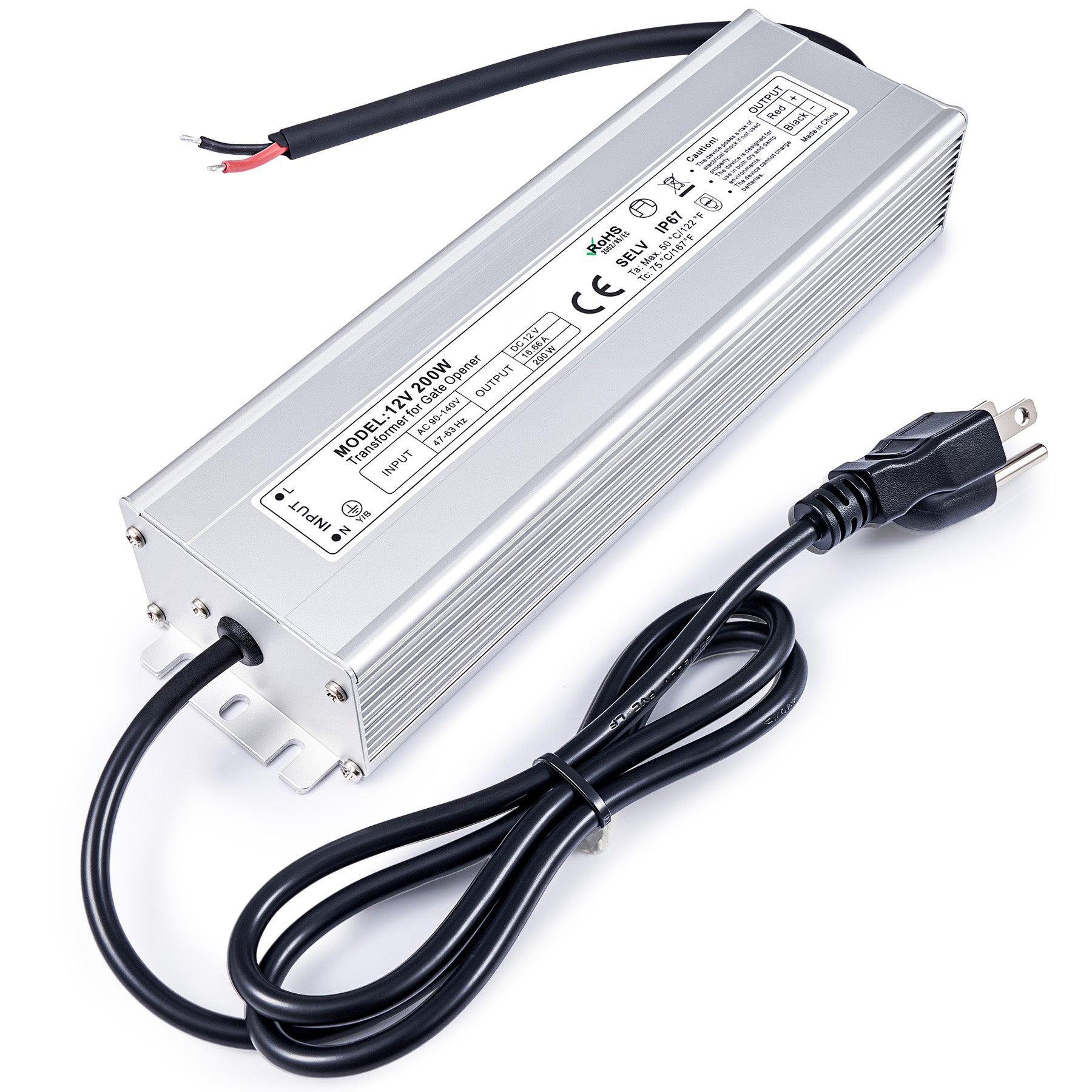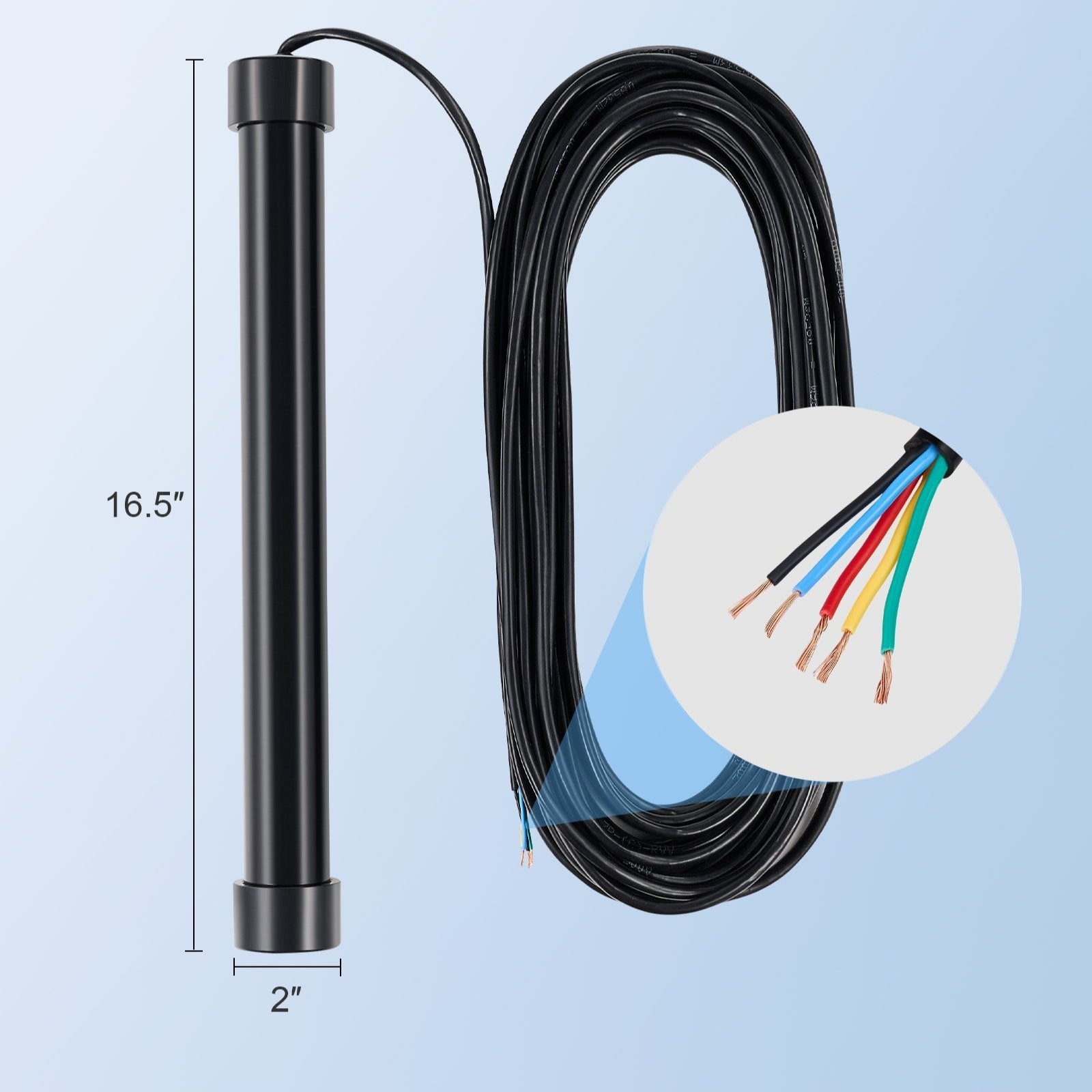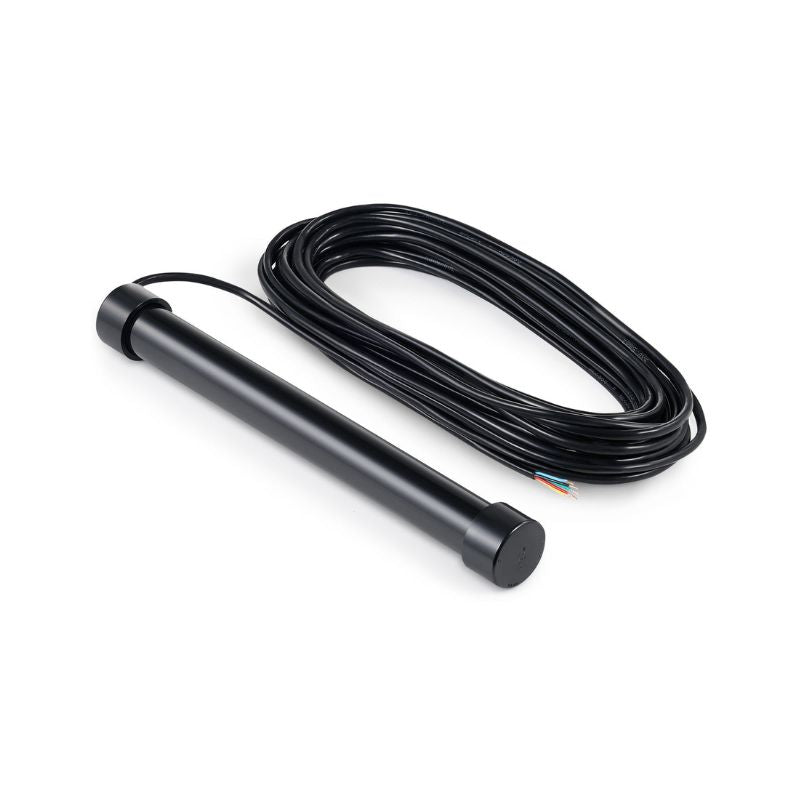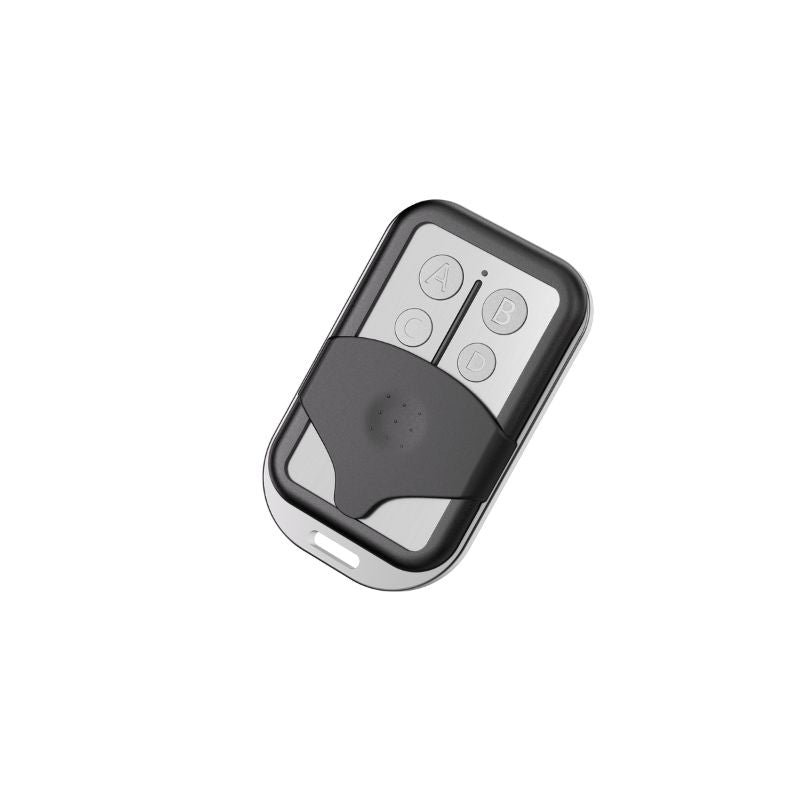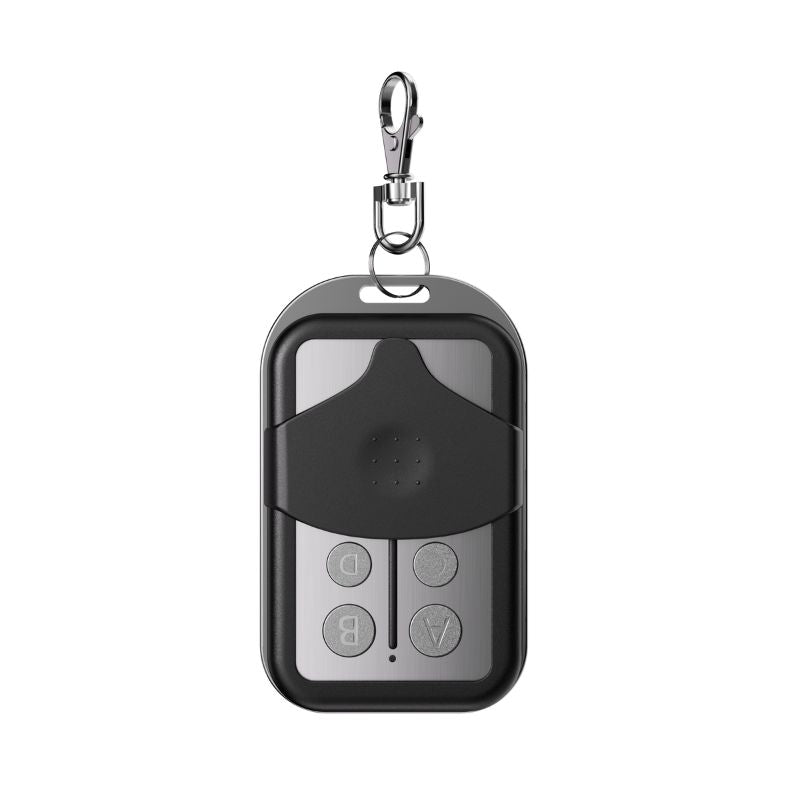Understanding the differences between steel driveway gates and aluminum driveway gates is crucial if you are looking to boost curb appeal, improve security, or find a driveway gate that can withstand the elements for years to come.
In this guide, we are breaking down steel vs aluminum gates: how the two materials compare in terms of strength, maintenance, price, and more, so you can make the best choice for your home or business.
1. Cost: Steel Gates are More Affordable
On average, steel driveway gates are more affordable than aluminum driveway gates. The differences in cost may vary depending on the design, size, and finishes of the gate, but a steel driveway gate can generally cost about 15–30% less than an aluminum driveway gate of the same size.
Here’s a rough estimate of the cost differences between aluminum and steel driveway gates:
- Aluminum gates: $90–$160 per linear foot
- Steel gates: $70–$120 per linear foot
Why Is Aluminum More Expensive?
The main reason why aluminum driveway gates are more expensive than steel gates is the cost of raw material. Aluminum costs more (per pound) than steel.
- Aluminum costs about $0.50-$0.75 per pound, while steel costs $0.20-$0.60 per pound. Though these prices tend to fluctuate, aluminum remains generally more expensive than steel.
- Aluminum is also a lightweight metal, which means it requires more specialized welding and fabrication. This adds to the price of the final product.
Is an Aluminum Driveway Gate Worth the Extra Cost?
Whether or not you should spend the extra bucks to get an aluminum gate depends largely on the weather conditions of the area you live in.
- A steel driveway gate will provide maximum strength and security at a cheaper price
- Pay more for aluminum if you live in a coastal or humid climate (aluminum won’t rust).
So, except you live in an area closer to the coast, or an area with a really humid climate, you might want to save your extra bucks and go for a steel gate.
2. Durability: Aluminum Gates vs. Galvanized Steel Gates
In terms of strength and resistance to physical impact, steel driveway gates are much more durable than aluminum gates. In terms of resisting environmental wear, like corrosion, aluminum gates are more durable.
Aluminum gates last longer, typically 20–30 years or more,
However, galvanized steel driveway gates are more durable than regular steel gates. While a regular steel gate may last for about 10- 15 years, a galvanized steel gate can last up to 25 years with proper upkeep.
How Long Does a Steel Gate Last?
- Steel gates (if not galvanized or maintained) can last about 10–15 years, potentially less in humid/coastal areas.
- Galvanized or powder-coated steel gates can last about 15–25 years with proper upkeep.
Why Galvanized Steel Gates Matter
Rust is the #1 factor in shortening a steel gate’s lifespan. A rusty steel gate weakens over time, can become unsightly, and may need full replacement.
Many people, especially those in coastal or humid regions, choose steel gates for their extra security and solidty, butt proceed to have them galvanized for rust resistance and rust-free durability.
3. Safety and security. Steel Driveway Gates are Safer
Steel has a much higher tensile strength than aluminum—it's tougher to bend, cut, or deform. Steel gates are more substantial, heavier, and harder to break through than aluminum gates.
- The added mass of steel also makes it more difficult to force open or ram through.
- Steel can withstand hits from vehicles or tools far better than aluminum.
- Steel gates are often made thicker or with solid cores for added protection.
How Secure is an Aluminum Gate?
Aluminum driveway gates are strong enough for most residential applications. Though you can boost the security of an aluminum gate with reinforced aluminum designs, aluminum cannot match steel's brute strength.
If Security Is a Major Concern, Should You Stick With Steel?
If security is your top priority, then a steel driveway gate is a better choice. Steel gates are the standard for high-security settings (commercial properties, warehouses, estates).
4. Installation Process: Aluminum Gates are Generally Easier to Install.
Aluminum driveway gates are easier and less complex to install than steel gates. To install a steel gate, you need heavier lifting equipment, stronger hinges and support posts, more manpower, and (in the case of automation) higher torque motors than you would need for an aluminum gate of the same size..
- Labor costs may be higher.
- Installation time may be longer.
- Gate opener upgrades can cost more.
If using professionals, the total project cost for installing a steel gate can rise by 10–20% just due to installation complexity.
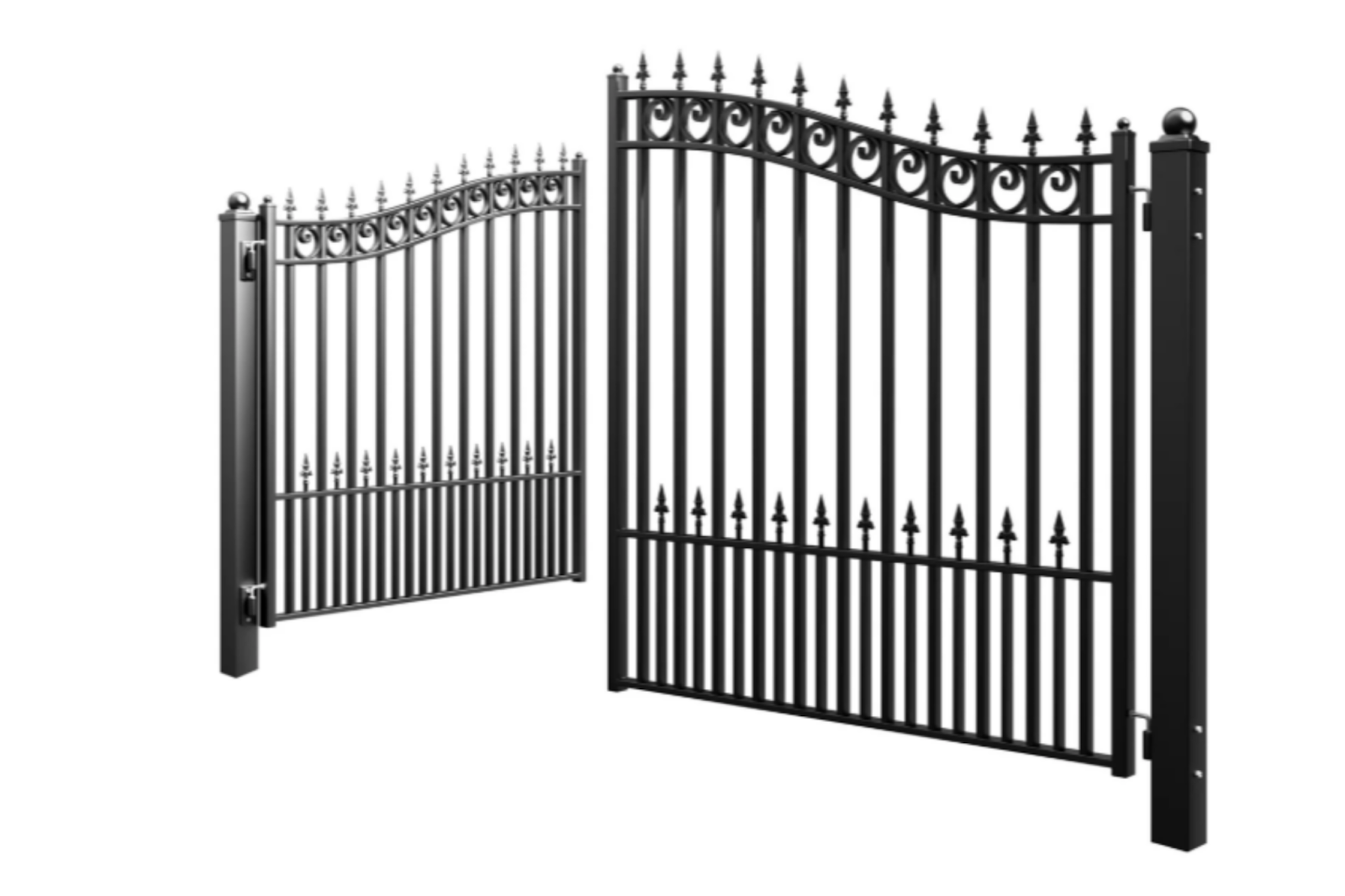
Steel Gate Installation vs Aluminum Gates Installation
Steel requires more planning, equipment, and budget for a secure, long-lasting setup.
- Heavier steel gates need reinforced concrete footings, thicker posts, and stronger mounting hardware.
- Steel may need touch-up painting or galvanizing steps during or after installation to prevent rust.
How to Save On Steel Driveway Gates Installation Costs
The easiest way to save on steel gate installation costs is to get a steel driveway gate that comes (from the manufacturer) with everything you need for quick installation.
With Zumi steel driveway gates, you get everything you need for quick and easy installation:pre-drilled holes, all the hardware you need, and easy-to-follow instructions.
If you are on a tight budget, doing DIY gate installation, limited on time equipment, or installing on uneven and unstable ground, you can still get any of Zumi’s steel driveway gates and install just as easily as an aluminum driveway gate.
5. Compatibility with automatic gate openers
An aluminum driveway gate is generally easier to pair with automatic gate openers than a steel gate. Aluminum is much lighter, which means even the more affordable automatic gate openers can be sufficient to power the gate.
Aluminum gates are lighter, meaning they generally do not need reinforced mounting or specialty openers. This greatly facilitates the gate opener installation process.
Can Steel Gates Work With Openers Too?
Steel gates are compatible with gate openers, too. Modern manufacturers are building steel driveway gates to be easily compatible with gate openers. Zumi Swing gates are a perfect match for Zumi's swing gate openers or any other model, making automation a breeze.
How Important is Gate Opener Compatibility?
Gate opener compatibility is a crucial factor when deciding which driveway gate to buy, especially if you are entertaining the prospects of automation in the future. Automatic gate openers are one of the biggest convenience features of any driveway gate.
A mismatch between gate weight and opener strength can lead to:
- Motor burnout
- Slow or jerky gate movement
- Frequent repairs or replacements
If you are planning on using an automatic gate opener — either now or in the future- choose a driveway gate that allows a plug-and-play, smooth automation experience with lower long-term maintenance.
6. Aesthetics: Steel for Classic Designs, Aluminum for Modern Driveway Gate Designs
Aluminum gates offer more flexibility in terms of styles, finishes, and modern designs, but steel gates, especially wrought iron types, provide classic beauty and ornate detail.
- Aluminum is more malleable, allowing for sleeker, more intricate, or modern designs.
-
Aluminum can be powder-coated in a wide range of colors and textures (matte, glossy, metallic).
Steel, on the other hand, is known for traditional, grand, and ornamental styles (think wrought iron scrollwork, spear-topped bars, heritage looks).
Related: 5 Modern Luxury Driveway Gate Designs in 2025
Which Is Better for Modern Driveway Gate Ideas or Matching Your Home’s Design?
- Modern, minimalist, or contemporary home ➜ Aluminum is a better fit.
- Classic, Mediterranean, Victorian, or estate-style home ➜ Steel may be a better aesthetic match.
Are Aesthetics Important in Gate Selection?
Your driveway gate is a major visual feature of your home. It’s often the first thing visitors and buyers see.
- A gate that clashes with your home can hurt curb appeal.
- A well-matched gate can enhance your property’s value and visual harmony.
- HOA restrictions or neighborhood styles may even dictate the aesthetic range you can choose from.
Steel wins if you're after classic elegance and traditional grandeur. But if your goal is to match a modern or custom home design, aluminum is likely the better option.
Aluminum Driveway Gates vs. Steel Driveway Gates: A Summary
| Category | Aluminum Driveway Gates | Steel Driveway Gates | Winner / Best For |
| Cost | Higher upfront cost, lower long-term maintenance | Lower upfront cost, higher long-term upkeep | Steel for budget buyers |
| Durability | Rust-resistant, but softer and easier to dent | Extremely strong and impact-resistant, but prone to rust | Steel for strength & longevity (if maintained) |
| Security | Lighter and easier to breach; suitable for basic protection | Heavier, stronger, harder to break into | Steel for high-security needs |
| Installation | Lightweight and easy to install; DIY-friendly | Heavier, requires extra support, tools, and labor | Aluminum for ease and speed |
| Automation Compatibility | Easily pairs with gate openers; requires less power | Needs heavy-duty openers; more wear on motors | Aluminum for seamless automation |
| Maintenance | Low-maintenance; won't rust | Needs regular rust prevention and repainting | Aluminum for low maintenance |
| Aesthetics & Design | More flexible for modern and custom designs | Classic, ornamental styles; less modern adaptability | Aluminum for modern homes, Steel for traditional |
| Best For | Modern looks, low upkeep, easy automation, and coastal climates | High security, traditional design, strength in harsh conditions | Depends on priorities |



